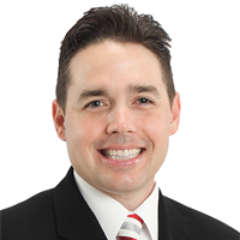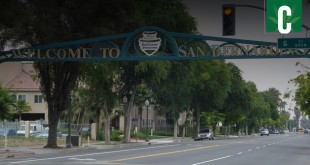An erstwhile drug warrior and staunch opponent of legal weed in California is running for a state Assembly seat that represents part of San Bernardino County.
Paul Chabot, who served as an adviser to the drug czars of the Clinton and Bush administrations, once compared marijuana to child pornography. Come November, he could be fighting for one of the most hotly-contested seats in the legislature.
Chabot told Redlands Daily Facts he wants to run to “fight for our children’s future so they can live in a prosperous state with high employment, low crime and better schools.”
 An Iraq War veteran, he’s running as a Republican in Assembly District 40, which is split almost evenly between Democratic and Republican voters (Democrats have a slight statistical edge). The Democratic Party holds a supermajority in both houses of the state legislature, a situation that has Republicans impotent and desperate for every potential victory.
An Iraq War veteran, he’s running as a Republican in Assembly District 40, which is split almost evenly between Democratic and Republican voters (Democrats have a slight statistical edge). The Democratic Party holds a supermajority in both houses of the state legislature, a situation that has Republicans impotent and desperate for every potential victory.
“The big thing is Republicans going up to Sacramento have no real voice, and they can’t make a decision on the budget,” Chabot said. “My goal is to work on very passionate issues, such as education and veterans’ issues, where we can find bipartisanship and common ground.”
His best-known issue, however, is weed. A former police officer and parole commissioner who later advised the federal government, Chabot has a long history advocating against legalization. He founded several groups dedicated to traditional anti-drug policy, including the Freestyle Foundation, the Inland Valley Drug Free Community Coalition, Drug Free RC, and the Coalition for a Drug Free California.
After his work as a reserve sheriff’s deputy and campus police officer, Chabot was appointed to the State Parole Board. Later he was selected for a fellowship program under the White House Office of National Drug Control Policy, which takes a decidedly anti-marijuana position. From there he was promoted to Senior Advisor for Law Enforcement, Justice and Drug Control Programs in the White House.
In that office and others he actively fought drug-policy reforms that have since begun to sweep the nation. He is still an aggressive opponent of all things cannabis in California and elsewhere.
Asked in 2013 why he thought pot should remain illegal, Chabot replied: “Why do we keep heroin, LSD, prostitution, child pornography illegal? Drugs destroy lives. We have more addicts in this country today than we have had in a long time. It’s a shame, when there are so many issues in the community that we could be working on, there’s organizations of people who are not just trying to legalize marijuana but all drugs across the board.”
Chabot is flat wrong about addiction rates. Over the last few years, addiction and abuse rates in almost every substance category have either dropped or stayed the same. And at least in recent years, the rate of marijuana addiction has remained steady, at about 4.3 percent, according to researchers.
What’s more, the same researchers readily acknowledge marijuana dependence is much less serious a problem than dependence on alcohol, prescription painkillers or other substances.
“Marijuana produces dependence less readily than most other illicit drugs,” they wrote in a paper published through the National Institutes of Health. “Some 9 percent of those who try marijuana develop dependence compared to, for example, 15 percent of people who try cocaine and 24 percent of those who try heroin.”
California redrew its district map in 2010. That year, before the map was changed, Chabot ran for the assembly seat in District 63, which included some of the same territory as District 40. He came in second in the Republican primary to Mike Morrell, who still holds the seat. Morrell announced in November he would run for a state Senate seat in 2014, leaving his Assembly post open.
 California Marijuana Market Breaking "Marijuana News" from CA
California Marijuana Market Breaking "Marijuana News" from CA




